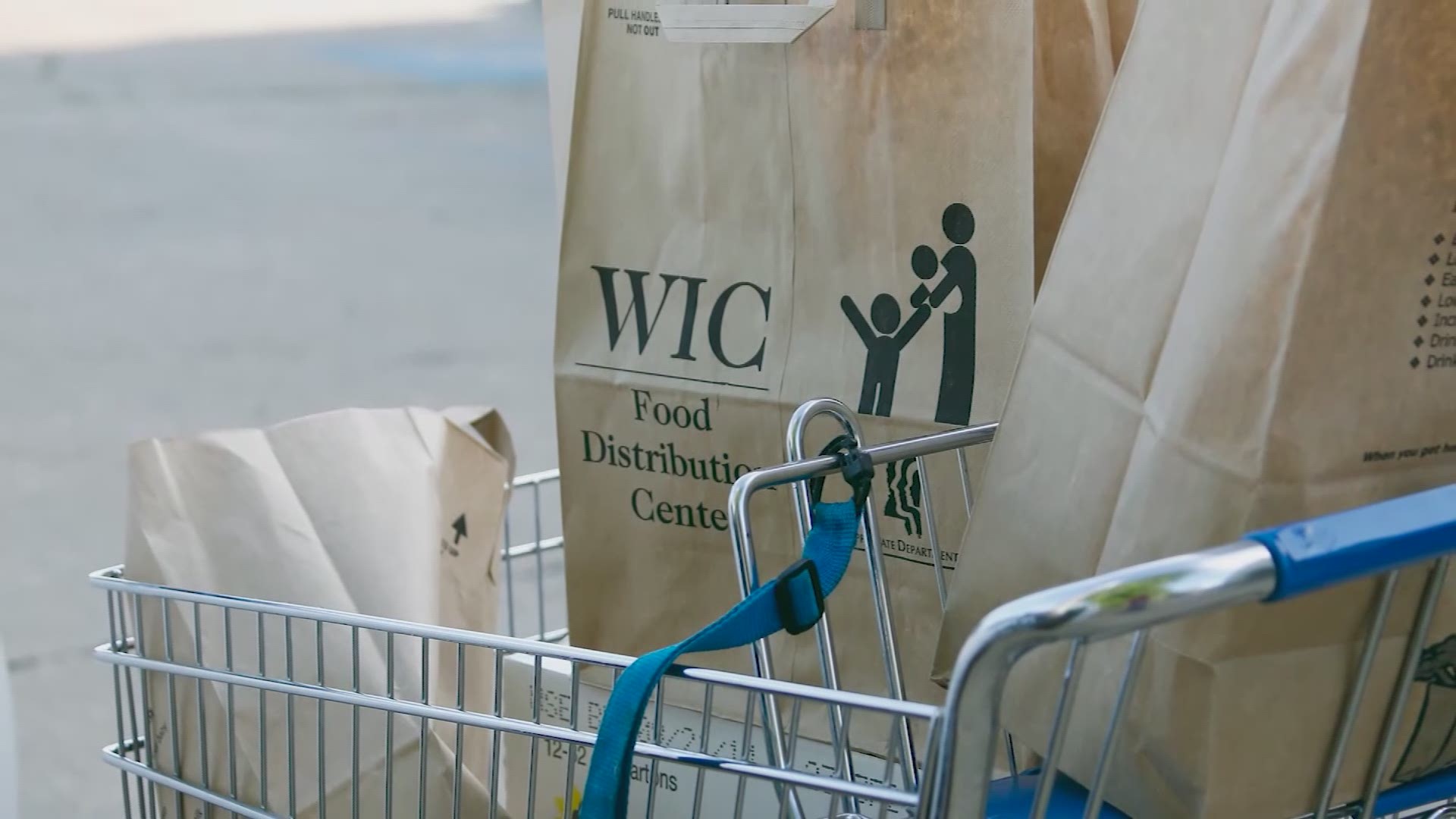HOUSTON — Stay-at-home orders due to the coronavirus have forced so many offices to close, but WIC wants you to know they’re open and here to help.
The Women, Infants and Children program helps pay for groceries and provides counseling on nutrition, cooking, and breastfeeding.
“It is a very difficult time for these families. We are seeing people who are coming in and telling us they’ve never applied for government assistance before,” said Karen Gibson, RD, UTHealth WIC Director.
UTHealth WIC has seen a three-fold increase in appointment requests recently.
Gibson says the whole application process is now taking place virtually.
“They come in, they don’t even walk into the clinic. We meet them at the door with their (Electronic Benefit Transfer) card that they can then use to go to the grocery store,” said Gibson.
Families who are pregnant or have children under 5 are eligible if they meet certain income guidelines.
You can apply as soon as someone in the family is laid off.
“We will – as much as we can virtually – we will hold their hand and walk them through it. We are very understanding to the frustration and uncertainty that a lot of people have,” said Gibson.
Applicants can request an initial appointment through TexasWIC.org.
They should receive a call from a WIC representative within four days.
Related coronavirus coverage:
Coronavirus symptoms
The symptoms of coronavirus can be similar to the flu or a bad cold. Symptoms include a fever, cough and shortness of breath, according to the Centers for Disease Control. Some patients also have nausea, body aches, headaches and stomach issues. Losing your sense of taste and/or smell can also be an early warning sign.
Most healthy people will have mild symptoms. A study of more than 72,000 patients by the Centers for Disease Control in China showed 80 percent of the cases there were mild.
But infections can cause pneumonia, severe acute respiratory syndrome, kidney failure and even death, according to the World Health Organization. Older people with underlying health conditions are most at risk for becoming seriously ill. However, U.S. experts are seeing a significant number of younger people being hospitalized, including some in ICU.
The CDC believes symptoms may appear anywhere from two to 14 days after being exposed.
Human coronaviruses are usually spread through...
- The air by coughing or sneezing
- Close personal contact, such as touching or shaking hands
- Touching an object or surface with the virus on it, then touching your mouth, nose or eyes before washing your hands.
Help stop the spread of coronavirus
- Stay home when you are sick.
- Eat and sleep separately from your family members
- Use different utensils and dishes
- Cover your cough or sneeze with your arm, not your hand.
- If you use a tissue, throw it in the trash.
- Follow social distancing
Lower your risk
- Wash your hands often with soap and water for at least 20 seconds. If soap and water are not available, use an alcohol-based hand sanitizer.
- Avoid touching your eyes, nose, and mouth with unwashed hands.
- Avoid close contact with people who are sick.
- Clean and disinfect frequently touched objects and surfaces.
- If you are 60 or over and have an underlying health condition such as cardiovascular disease, diabetes or respiratory illnesses like asthma or COPD, the World Health Organization advises you to try to avoid crowds or places where you might interact with people who are sick.
Get complete coverage of the coronavirus by texting 'FACTS' to 713-526-1111.

